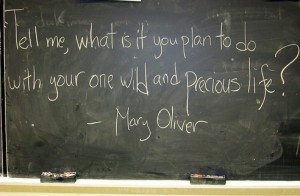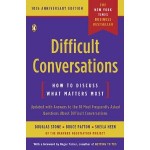 In this delightful poem, English poet John Kenyon* (1783-1856) mocks the pretentious and complacent 19th-century British traveler who avoids mixing with the local populations, learns little that touches or changes him, then returns home to pontificate on (and brag about) what he has observed from the comfort of his train car. Kenyon reminds us that if we fail to open ourselves emotionally to that which we encounter as we drift around the bay that is our life, we risk becoming like the well-travelled oyster who — “shut within
his sulky shell, he nought hath seen.”
In this delightful poem, English poet John Kenyon* (1783-1856) mocks the pretentious and complacent 19th-century British traveler who avoids mixing with the local populations, learns little that touches or changes him, then returns home to pontificate on (and brag about) what he has observed from the comfort of his train car. Kenyon reminds us that if we fail to open ourselves emotionally to that which we encounter as we drift around the bay that is our life, we risk becoming like the well-travelled oyster who — “shut within
his sulky shell, he nought hath seen.”
A Poem about Transformation
 The following beautiful poem captures the moment many of us have known when we dare to look at ourselves in the mirror, in search of our authentic self and our authentic voice. On that day, writes poetry critic Roger Housden (Ten Poems to Change Your life), “you simply know that you cannot continue to play by the rules you have accepted for years.” On that day you embark on a journey in which a new self, no longer controlled by the past, can mature and blossom.
The following beautiful poem captures the moment many of us have known when we dare to look at ourselves in the mirror, in search of our authentic self and our authentic voice. On that day, writes poetry critic Roger Housden (Ten Poems to Change Your life), “you simply know that you cannot continue to play by the rules you have accepted for years.” On that day you embark on a journey in which a new self, no longer controlled by the past, can mature and blossom.
The Pause that Refreshes
 Many of us, possibly most of us, find it challenging not to react immediately to various triggers without anger, irritation, or defensiveness. Rather than take the time to contemplate and reflect, we react much like Pavlov’s conditioned dogs. And thus we go through life, repeating the same script over and over, with little awareness that we have the choice to respond differently.
Many of us, possibly most of us, find it challenging not to react immediately to various triggers without anger, irritation, or defensiveness. Rather than take the time to contemplate and reflect, we react much like Pavlov’s conditioned dogs. And thus we go through life, repeating the same script over and over, with little awareness that we have the choice to respond differently.
Learning from the N. Ireland Peace Negotiator
 Harri Holkeri, a former Finnish prime minister (1937-2011) who helped shepherd talks that led to the historic 1998 peace agreement in Northern Ireland, died this week in Helsinki. In a speech in 2008, Mr. Holkeri cited several reasons he and his colleagues were able to guide the long-divided parties to a deal. I wondered, as I read the NYTimes obituary, whether these might be helpful in navigating our own everyday disagreements and conflicts.
Harri Holkeri, a former Finnish prime minister (1937-2011) who helped shepherd talks that led to the historic 1998 peace agreement in Northern Ireland, died this week in Helsinki. In a speech in 2008, Mr. Holkeri cited several reasons he and his colleagues were able to guide the long-divided parties to a deal. I wondered, as I read the NYTimes obituary, whether these might be helpful in navigating our own everyday disagreements and conflicts.
Handling Tough Conversations
 One of my favorite books on the subject of handling tough conversations and situations is Difficult Conversations: How to Discuss What Matters Most (Stone, Patton, Heen & Fisher, 2010). Based on 15 years of work at the Harvard Negotiation Project and consultations with thousands of people struggling to communicate effectively in tough situations, the authors answer the question: When people confront the conversations they dread the most, what works?
One of my favorite books on the subject of handling tough conversations and situations is Difficult Conversations: How to Discuss What Matters Most (Stone, Patton, Heen & Fisher, 2010). Based on 15 years of work at the Harvard Negotiation Project and consultations with thousands of people struggling to communicate effectively in tough situations, the authors answer the question: When people confront the conversations they dread the most, what works?